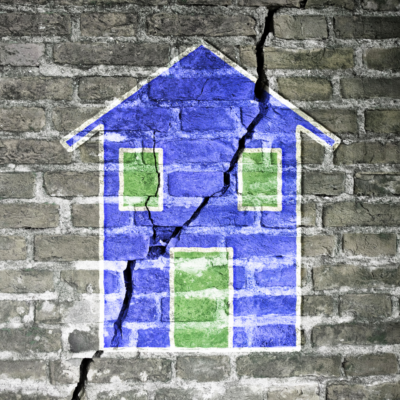
When it comes to buying a house, the saying “looks can be deceiving” couldn’t be more accurate. While a home might look perfect on the surface, there can be hidden issues that could cost you big in the long run. Being aware of certain red flags can save you from making a costly mistake and help you make a well-informed decision.
Here are six warning signs to watch out for before stepping inside a potential home:
- Neighborhood Red Flags:
If you see an unusually high number of “For Sale” signs in the area, it’s time to dig deeper. Ask your real estate agent questions about crime rates, school quality, job opportunities, or any ongoing or upcoming developments that might make the area less desirable. These could be signs of a larger problem in the neighborhood. - Cracks in the Foundation:
Always inspect the foundation for cracks, whether on the exterior walls, basement, or floors. Cracks can indicate poor drainage or unstable soil. Structural cracks are serious and can cause the house to lean, while nonstructural cracks could harbor mold or pests. - Water Damage:
Keep an eye out for water stains, bubbles, or spots, which can signal a leaky roof or pipes. These repairs can be costly and, if ignored, may lead to bigger issues like structural damage. - Condensation on Windows:
Condensation between window panes suggests failed seals, which allows moisture inside. This can increase your heating and cooling costs. Replacing old windows with energy-efficient ones, such as double-pane windows, can help improve energy efficiency and reduce noise. - Uneven Floors:
If the floors feel sloped or uneven, it’s likely a sign of structural problems such as rotten wood, foundation issues, or even collapsed beams. Use a marble to check; if it rolls on its own, you’re dealing with sloping floors. - Old HVAC Systems:
Ask about the HVAC system’s age, brand, and service history. These systems typically last 20–30 years, and replacements can be expensive. Some brands are more affordable to maintain, while others might require costly specialized parts.
In the end, hiring a professional home inspector is a smart investment to ensure that you’re making the right decision. Lenders will require an inspection before approving your mortgage, but having your own inspection ensures there are no surprises after you move in. Contact us for more guidance on what to look for when purchasing a home!




